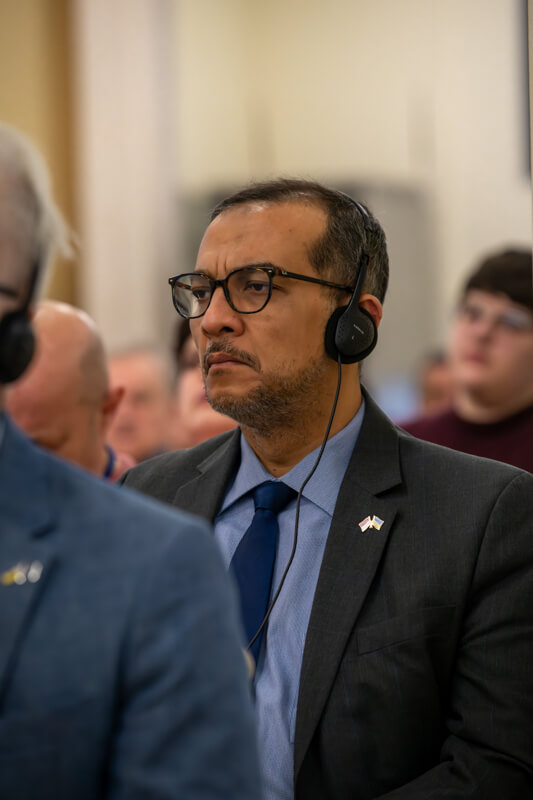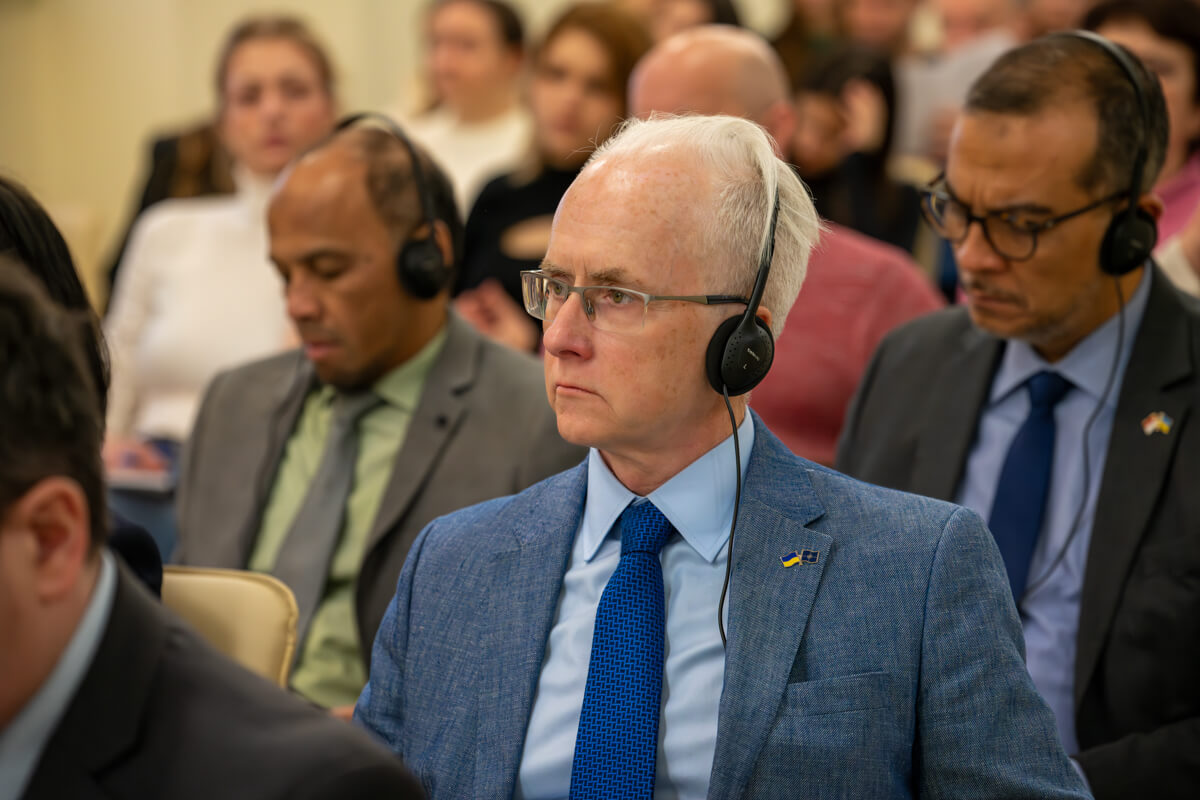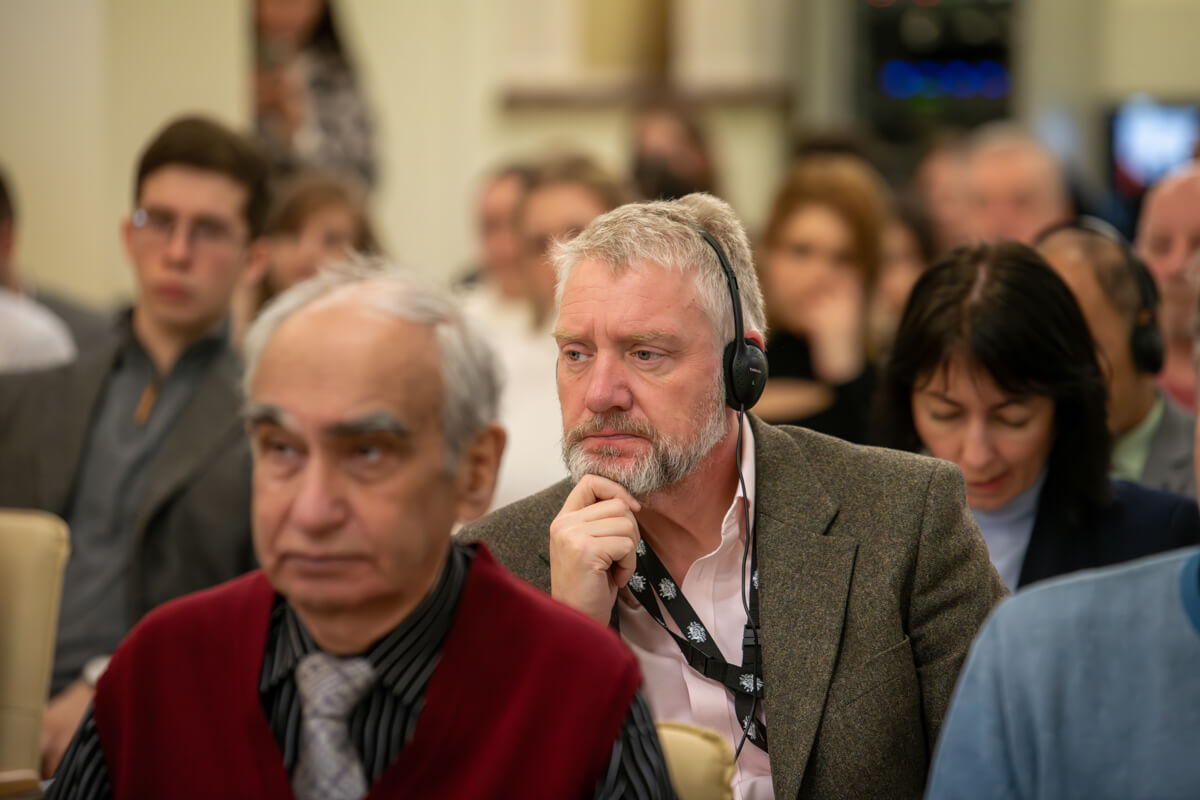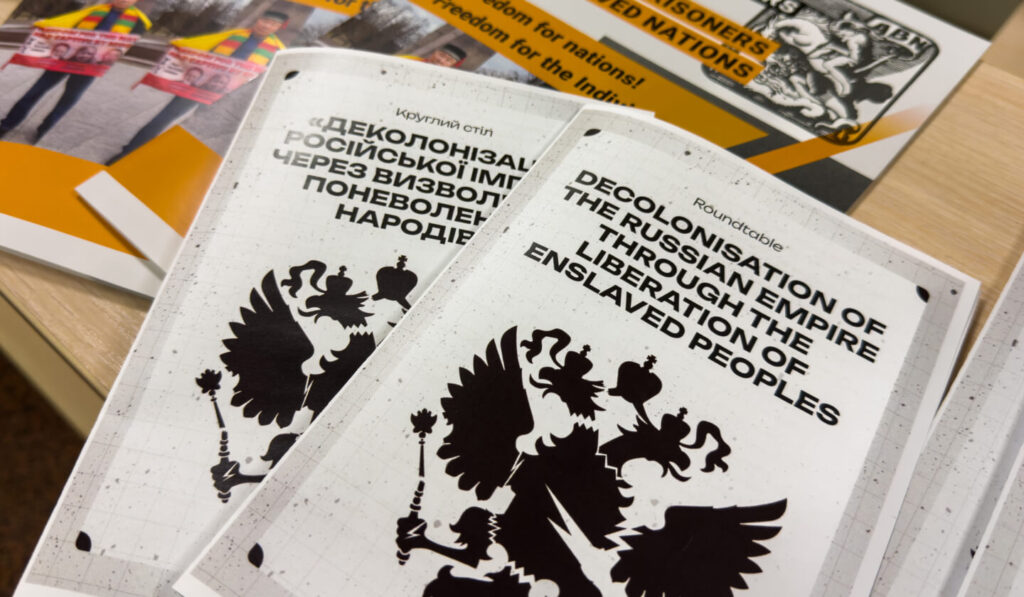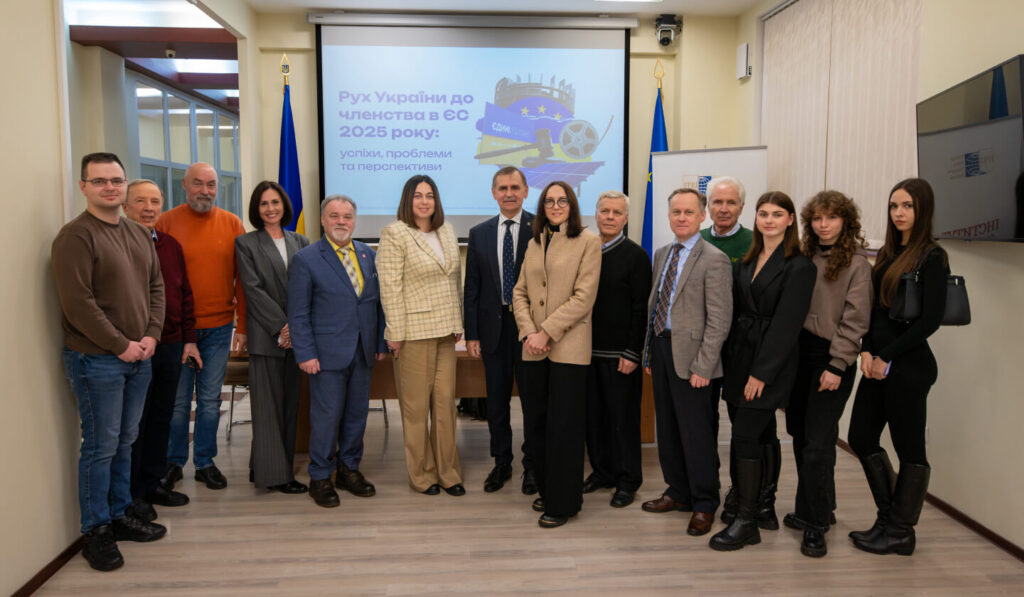On Tuesday, 25 March 2025, a roundtable discussion entitled Three Main Factors in Defeating russia: Sanctions, Weapons and the putin Regime took place at the GDIP Media Center.
Volodymyr Ohryzko, Minister for Foreign Affairs of Ukraine (2007–9), Ambassador Extraordinary and Plenipotentiary, Head of the Centre for russian Studies, moderated the event. ‘Russia faces widespread impoverishment, a deep economic crisis, and an uncertain economic future. To understand how the sanctions from our Western partners will contribute to this noble process of the collapse of the russian economy, how the russian military-industrial complex will react, and how we can further assist in this process, particularly by continuing to destroy russian infrastructure through precise military strikes, we will also discuss the situation in russian provinces and national republics, and how the situation might evolve there,’ said Mr Ohryzko in his opening remarks. He analysed the main factors demonstrating the decline of the russian economic system before introducing the expert panel.
Among the event’s speakers were: Yuliia Pavytska, Manager of Sanctions Programme at KSE Institute; Volodymyr Vlasiuk, PhD in Economics, Chairman of the Board of the Institute for National Economic Development; Serhii Zghurets, Director of the Defense Express Media & Consulting Company, Member of the Board of the League of Defense Companies of Ukraine; Syreś Boläeń, member of the Free Nations League.
During the roundtable, the speakers addressed several key issues: whether international sanctions will remain an effective tool of pressure on russia; how long the russian economy will withstand the sanctions and whether it can overcome the structural imbalances they cause; whether Ukraine may face a shortage of weaponry: the prospects for receiving arms from the USA and Europe; the production of modern weapons in Ukraine; national resistance, regional characteristics, or the putin regime — what will undermine russia from within more quickly.
Yuliia Pavytska discussed the level of damage inflicted on the putin regime and the russian economy by economic sanctions. She noted,
‘It must be recognised that the kremlin still has resources to continue its aggressive war. At the same time, russia’s demands to cancel or ease sanctions during the first round of negotiations serve as a litmus test, indicating that sanctions are inconvenient, harmful to russia, and significantly limit the regime’s long-term ability to control the economy. However, the mere application of sanctions cannot end the war; it must act as a supplementary mechanism capable of inflicting harm on the aggressor, forcing them to make concessions at the negotiating table.’
Volodymyr Vlasiuk provided an in-depth analysis of the russian federation’s economic landscape, noting that the aggressor state faces a severe lack of funds to sustain its war of attrition in Ukraine:
‘Economically, russia is sitting on a powder keg. The economic factor is putting immense pressure on putin, and it will work increasingly against his regime every month. Who can save him? Donald Trump, if he lifts the sanctions. This year, the social-economic mood among the population will deteriorate significantly, and the desire to fight will diminish. Will russia still have rubles to pay its soldiers? Not necessarily, as payments have been decreasing recently. Therefore, putin will have to shift from a professional army to mobilisation. Will the regime withstand this manoeuvre? Most likely not. Therefore, Ukraine must hold firm. Five million drones, strikes on russian oil infrastructure, the equipping of our military, and modern war technologies — against this, their numerical advantage may not work as they expect.’
Serhii Zghurets discussed the advantages, disadvantages, and main funding issues of russia’s military-industrial complex:
‘Indeed, the enemy has the advantage in manpower and technology, but thanks to technological solutions, new tactical approaches, and changes in tactics and management, we now see that the situation on the front line is not as critical as it was at the end of last year when we spoke about the potential collapse of the front in the Pokrovsk direction. Now, ensuring the unification of our military capabilities on the front and all decisions that enhance our defence capacity is crucial. We must ensure a symbiosis based on the unity of our society and the understanding that the enemy’s goal — destroying Ukraine as a state — has not changed. We have no choice but to withstand in this fight.’
Syreś Boläeń, speaking on the violations of indigenous peoples’ rights within russia, the activities of the Free Nations League in countering russian propaganda, and exposing the crimes of the ‘empire of evil’, remarked:
‘Our salvation lies in the destruction of the enemy, who wants to destroy us. Ukraine’s historical mission is to decolonise the empire and help the colonised peoples gain freedom. The process of the empire’s disintegration, which began in the last century, continues. The Soviet Union, which collapsed 100 years ago, transformed into russia. There are three distinct names, but it is the same state with the same principles, values, holidays, and attitudes toward people, nations, and other world countries. The process of its collapse cannot be stopped; it can only be slowed or accelerated. The national and regional movements that belong to the Free Nations League, just like Ukraine, are interested in speeding up the collapse, as the process may drag on with very unpleasant consequences for all of us.’
The diplomats, academics, lecturers, and students from universities also joined an active discussion.


